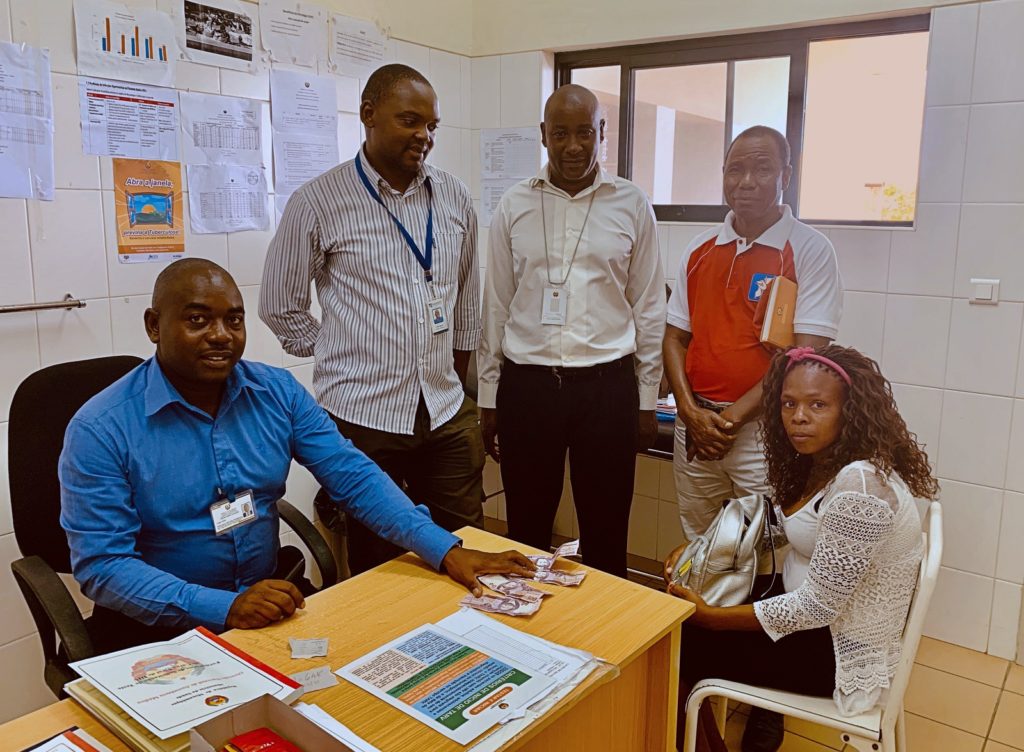Stories
Paying for Blood: Bribery in Mozambique’s Healthcare System
The labor pains came as no surprise. Maria* was nine months pregnant with her second child; she knew what to expect. But as she made her way to the local health center where she was to give birth, Maria began to bleed. By the time she arrived, she was hemorrhaging.
The nurse on duty quickly arranged for an ambulance to take her to Quissico District Hospital for a blood transfusion. Fortunately, Maria survived. Her baby, however, did not.
Later that night, as Maria was preparing to be discharged, a nurse approached and told her that she had to pay the equivalent of 70 USD for the blood and plasma she had received. It was a huge sum for Maria, who, like many Mozambicans, gets by on the food she farms and the small amount she makes selling some of her harvest at the market.
“I was outraged,” recalls Maria. “[But the nurse] said there’s no other way. ‘You can’t leave here until you pay. That’s the law.”
“[My family and I] borrowed money and pieced together half of the amount. We explained to her that after we buried the baby we would come back with the rest. The nurse said we could go but my health card and ID card had to stay with her to ensure I’d return.”
A week after the funeral, the nurse began to call, pressuring the grieving mother to pay. Maria was at a loss as to what to do. She needed her ID and health card back, but she had borrowed all the money she could.
“I was really sad,” confesses Maria. “First I lost my child, and then they charged me this fee. It was really so much money. … That’s when I called my cousin [for advice].”
Maria’s cousin put her in touch with Cézar, a Namati health advocate, and the Quissico village health committee (VHC). They explained to Maria that paying for blood or plasma is not, as the nurse said, “the law”. In fact, requesting payment for any health services or supplies that are supposed to be provided free of charge is punishable as a crime under Mozambique’s anti-corruption law, as well as the Ministry of Health’s anti-bribery policy, which Namati helped to instate.
They assisted Maria in reporting the incident to the hospital, and when the hospital asked for a meeting, they went with her. The nurse initially denied the charge, but at a second meeting, with the hospital director present, she confessed. She asked for Maria’s forgiveness and returned her money and documents.

From left to right: the Quissico District Hospital Administrator, Cézar (Namati paralegal), two members of the village health committee, and Maria
Maria says she was both happy and “relieved” when her money was returned. “First, because I had no way to return the money I had borrowed… And [because] I am now no longer afraid to go to the hospital… I went back and told my family and my community that if ever someone asks you to pay money for care at the hospital, they are robbing you. People didn’t know this before.”
Maria’s declaration is not an exaggeration. Few Mozambicans are aware of the laws and policies that protect their rights as patients, and some healthcare workers use this to their advantage.
Quissico District Hospital was infamous for bribery and illegal fees. During the regular education sessions that Cézar and VHC held on patients’ rights, numerous people had complained that they were made to pay for treatment. Those who did not pay were reportedly denied access to essential and, in some cases, lifesaving health services.
The hospital had attempted to address the issue but the power dynamics and fractured relationship between the community and the hospital proved to be major barriers. As the hospital director, Dr. Osório Trigo, explains: “Health providers tried to raise patients’ awareness about these things in the past, [but] no one ever approached them with concerns or complaints.”
Dr.Osório recognized that “patients [and] community members feel much more comfortable speaking with the VHC and health advocate.” After Maria’s case, he asked Cézar and the VHC if they would conduct a series of educational sessions for healthcare providers and patients specifically devoted to the National Strategy to Prevent and Combat Bribery in the Health Sector. They happily obliged.
Several months later, the VHC asked patients in the hospital and community about the practice of bribery. No new cases were reported.
“We’ve seen a huge change,” affirms Dr. Osório. “When it’s the voice of the community speaking, we can no longer ignore it. When they speak up we’re obliged to respond. … The village health committee has really helped in terms of bringing the community and the hospital together.”
*name changed upon request
